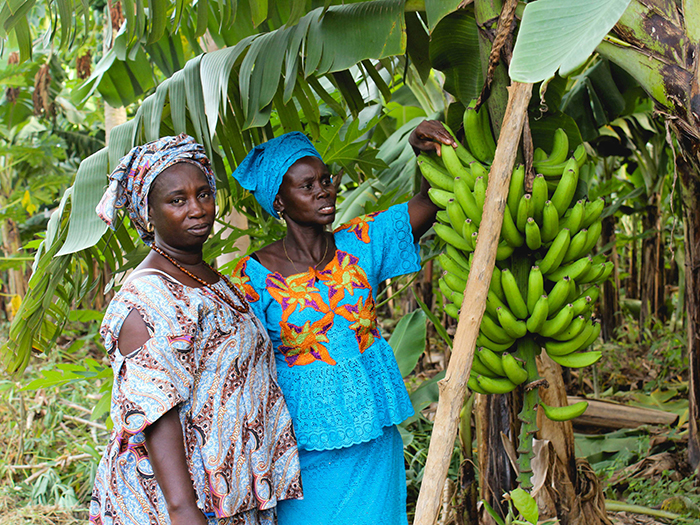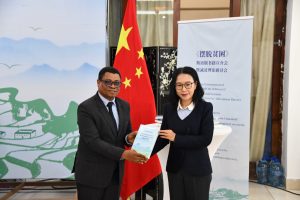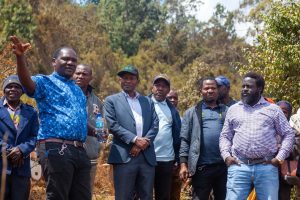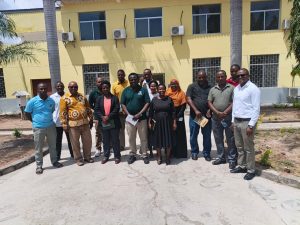TARI-Maruku In Robust Initiative To Fight Against Pests and Diseases In Banana Sub- Sector

By Senior Reporter
“These new varieties can thrive without relying on chemical pesticides and are drought-tolerant, making them ideal for farmers in Kagera,” Dr Shimwela added.
THE Tanzania Agricultural Research Institute (TARI) through its Kagera – based Maruku Centre is working on a special program to heighten performance of the banana sub- sector.
Through the robust initiative, the Center, among others, has research and develop the new high-yielding and disease resistant banana to help farmers increase productivity.
The ongoing program which eyes to transform banana production and providing the farmers with the tools to reclaim their crops and boost their incomes, also incorporates efforts to counter a spate of pests, diseases and low yields, the situation which has been threatening livelihoods across the country.
The Centre’s Manager, Dr Mpoki Shimwela, expressed that TARI-Makuru has been actively introducing drought and disease-resistant banana varieties, developed by the Fundación Hondureña de Investigación Agrícola (FHIA), to the Kagera Region.
He was speaking at the recent World Food Day celebrations in Kagera, organised by the United Nations Food and Agriculture Organisation (FAO) and government partners.
He said the new varieties are potential in increasing yields, but are also resistant to banana disease and pest.
With the varieties , he added the farmers stands chance to enhance fruit quality, including improved taste and nutritional value.
“These new varieties can thrive without relying on chemical pesticides and are drought-tolerant, making them ideal for farmers in Kagera,” Dr Shimwela added.
He named the varieties as FHIA-23, populary known for its resistance to Black Sigatoka and other diseases, and FHIA-17, which combines good yield potential with disease resistance, saying the varieties are already being evaluated across the region.
And he added, for years banana farmers in Kagera have been grappled with low yields and the devastating impact of pests and diseases.
“While the potential yield per hectare is much higher, pests like weevils and nematodes, as well as diseases like bacterial wilt and Banana Bunchy Top Virus (BBTV), have limited productivity,” he informed.
According to him, in ideal conditions, banana farms in Tanzania could yield up to 70 tonnes per hectare, with each bunch weighing between 30 and 50 kilogrammes. Yet, many farmers achieve only a fraction of this potential, often as low as seven tonnes per hectare.
He said BBTV, one of the most destructive banana diseases worldwide, causes stunted growth and a distorted “bunched” appearance in the leaves.
This virus, along with bacterial and fusarium wilt, continues to pose serious threats to banana production.
TARI-Maruku is tackling these challenges through a multi-pronged approach. The centre provides farmers and extension workers with training on disease control methods, focusing on bacterial wilt, a significant threat in the Lake Zone.
“We educate farmers on best practices for disease control,” Dr Shimwela noted.
“For instance, we emphasise proper sanitation and pruning techniques. If farmers prune diseased leaves and then cut a healthy plant without disinfecting their tools, the disease can easily spread.”
The centre also promotes the use of certified, disease-free planting materials, ensuring that farmers start with clean, quality plants.
“By encouraging the use of clean tools and quality planting materials, we’re helping prevent disease spread,” he added. Farmers are taught to sanitise tools with bleach or fire and to remove the male flower promptly to prevent bees from transmitting infection.
In addition to these practices, TARI-Makuru works closely with farmers to raise awareness of BBTV and its spread through infected planting materials and aphids.
“This virus is primarily spread through planting materials and aphids,” Dr Shimwela explained. “Educating farmers on proper handling and sourcing of materials is essential in controlling BBTV’s impact on the region.”








